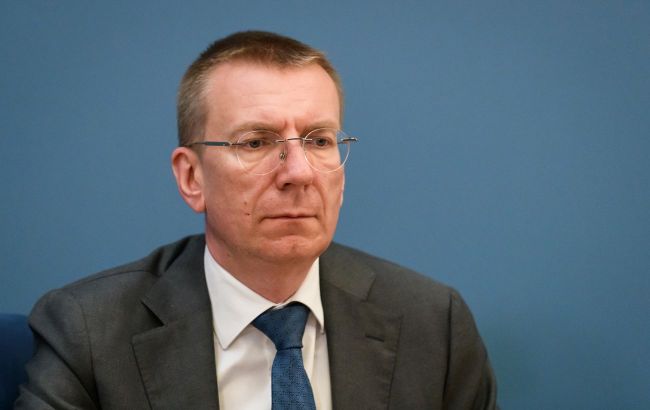Ukraine's EU accession talks will be extremely difficult - President of Latvia
 President of Latvia Edgars Rinkēvičs (Getty Images)
President of Latvia Edgars Rinkēvičs (Getty Images)
The process of negotiations on Ukraine's and Moldova's accession to the European Union will be extremely difficult, but it is quite possible to start it in June this year, according to the President of Latvia Edgars Rinkēvičs.
He said that Ukraine's accession to the EU could mean quite significant changes in the bloc's economy, particularly in agriculture.
"EU membership also means quite a few responsibilities, and in a country that is currently at war, it is certainly not easy to carry out reforms or transformations. Therefore, I think that yes, we need to give Ukraine and Moldova a positive signal in June that we are starting negotiations," the Latvian president said.
Rinkēvičs added that issues related to environmental protection requirements and reform of the state apparatus may prove difficult.
"Yes, we need to start talking about specific things, but we must take into account that this process will not be easy, because there will be a lot of disputes, for example, regarding agriculture," he said.
Ukraine's path to EU membership
Since submitting its application for EU membership on February 28, 2022, Ukraine has demonstrated a strong commitment to fulfilling all the necessary conditions. President Volodymyr Zelenskyy has repeatedly emphasized that integration with the European Union is one of the country's top priorities.
At the same time, experts express different opinions on the timing of accession. The head of the European Council, Charles Michel, voiced a more optimistic forecast, saying that Ukraine could become an EU member by 2030.
On November 8, 2023, the European Commission recommended the start of formal negotiations on Ukraine and Moldova's accession to the EU, and on December 14, the European Council supported the start of negotiations on Ukraine's membership with 26 votes in favor. Hungary, represented by Prime Minister Viktor Orban, abstained from voting.
On March 12, 2024, the European Commission presented the official negotiation framework for Ukraine and Moldova. This document establishes the key principles and foundations of future membership, which will be taken into account in negotiations with each candidate country.

